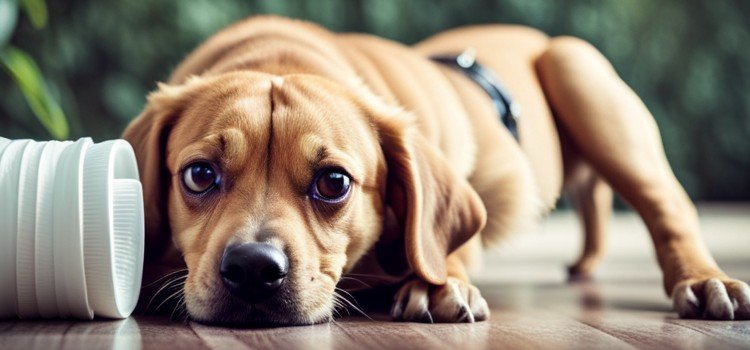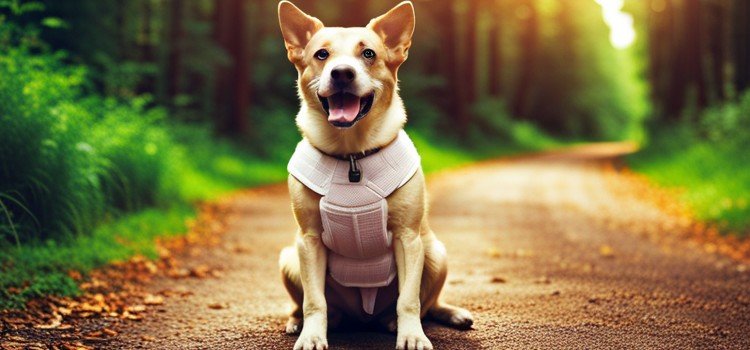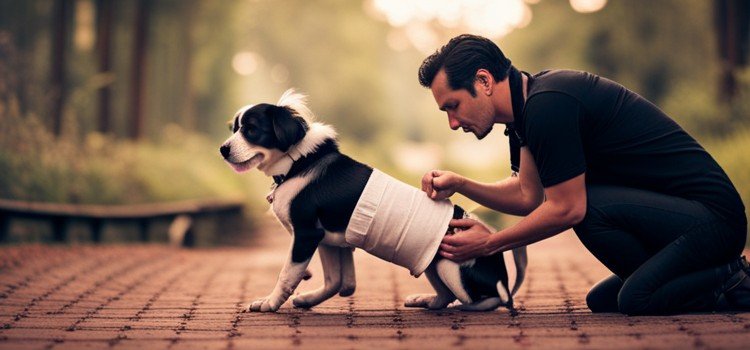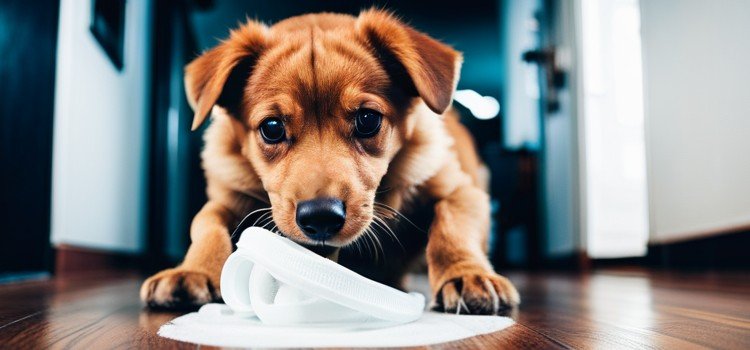As an Amazon Associate committed to the mission of improving the lives of our readers, Live-Clear.com receives a small commission from eligible purchases made through our affiliate links. This revenue enables us to keep producing insightful articles and other material.
Owning a dog comes with its fair share of responsibilities, and one aspect that often goes overlooked is the need for dog diapers. Whether you have a puppy that’s not yet housetrained or an elderly dog with incontinence issues, understanding how often you should change your dog’s diapers is crucial to maintaining their health and comfort. In this article, we’ll explore the factors that influence the frequency of diaper changes and provide practical tips for keeping your furry friend clean and happy.

Understanding Your Dog’s Needs
Before diving into the specifics of changing dog diapers, it’s essential to recognize that every dog is unique. Their age, breed, size, and health condition affect how often they require a diaper change.
The following are some important aspects to take into consideration:
- Age
Puppies, like human babies, have less control over their bodily functions. This means they may need more frequent diaper changes than adult dogs.
- Health Issues
Dogs with medical conditions such as urinary tract infections or diabetes may experience increased frequency in urination. This, in turn, affects how often you need to change their diapers.
- Size and Breed
Smaller dog breeds generally have smaller bladders, which may necessitate more frequent diaper changes. Additionally, certain breeds may be more prone to incontinence due to their genetic makeup.
- Activity Level
Active dogs that exercise regularly and play may require more frequent diaper changes as physical activity can stimulate bladder and bowel movements.
Diaper Change Frequency Guidelines
Now that we’ve considered the factors affecting diaper change frequency, let’s delve into some practical guidelines:
Regular Check-Ins
To ensure your dog’s comfort and hygiene, it’s crucial to check their diaper regularly. Changing their diaper every 2 to 4 hours is a good starting point for most dogs.
Monitor Wetness
Pay close attention to the diaper’s wetness level. Don’t wait if it’s filthy or overly wet; change it immediately. Prolonged moisture exposure can cause skin irritation and pain.
Overnight Considerations
For dogs that wear diapers overnight, consider using a high-absorbency diaper designed for extended use. This can help prevent leaks and give your dog a good night’s sleep.
Skin Care
Apply a pet-friendly diaper rash cream between diaper changes to protect your dog’s skin from irritation. Before using any creams, make sure the area is clean and dry.

The Importance of Routine
Establishing a consistent routine for diaper changes is not only beneficial for your dog but also makes your life easier. Dogs thrive on predictability; knowing when to expect a diaper change can reduce their anxiety and stress.
Pros & Cons of Top Rated Dog Diaper
Pet Magasin Luxury Reusable Dog Diapers
PROS
CONS
Pet Parents Premium Washable Dog Diapers
PROS
CONS
Wegreeco Washable Reusable Premium Dog Diapers
PROS
CONS
Teamoy Reusable Wrap Diapers for Male Dogs
PROS
CONS
Paw Legend Washable Reusable Female Dog Diapers
PROS
CONS
Conclusion
In conclusion, how often you should change your dog’s diapers depends on various factors, including their age, health, size, and activity level. Regular check-ins, monitoring wetness, and maintaining a diaper change routine are vital to keeping your furry friend comfortable and healthy. Remember that a clean and dry dog is a happy dog.

FAQs
When selecting a dog diaper, measure your dog’s waist and refer to the sizing chart provided by the manufacturer. Ensure a snug fit without being too tight to prevent leaks and discomfort.
Baby diapers for dogs are not recommended, as they may not provide the necessary absorbency and fit. Opt for specially designed dog diapers for the best results.
Some dogs may initially resist wearing diapers. To ease the transition, gradually introduce them to the diapers and reward them with treats and praise for cooperation.
Both reusable and disposable diapers have their advantages. Reusable diapers are eco-friendly, while disposable ones offer convenience. Select the option that best fits your lifestyle and tastes.
If you’re unsure about your dog’s diaper needs or if they are experiencing frequent accidents, it’s advisable to consult with a veterinarian. They can guide you in managing your dog’s specific situation.
Amazon and the Amazon logo are trademarks of Amazon.com, Inc, or its affiliates.



